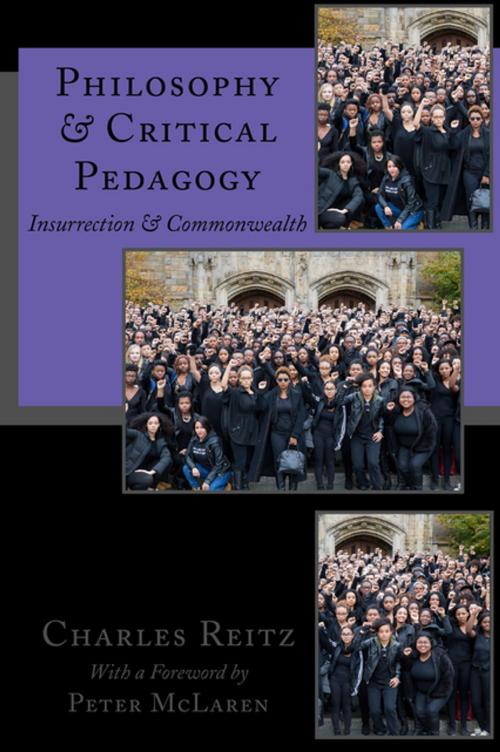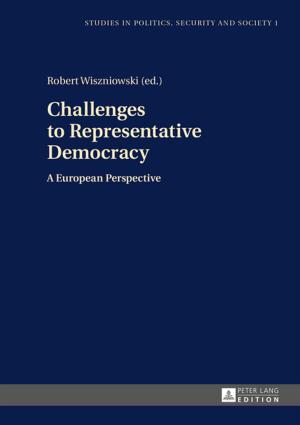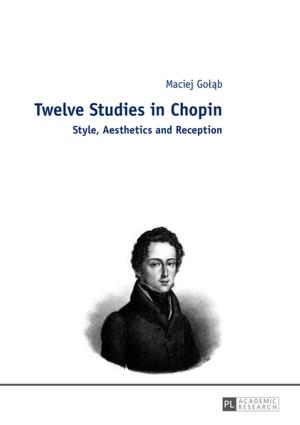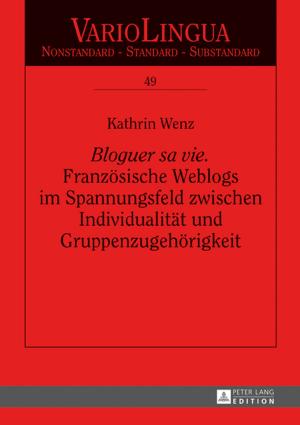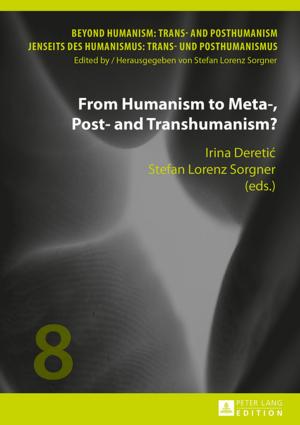Philosophy and Critical Pedagogy
Insurrection and Commonwealth
Nonfiction, Religion & Spirituality, Philosophy, Logic, Reference & Language, Education & Teaching, Educational Theory, Philosophy & Social Aspects| Author: | Charles Reitz | ISBN: | 9781454198543 |
| Publisher: | Peter Lang | Publication: | May 10, 2016 |
| Imprint: | Peter Lang Inc., International Academic Publishers | Language: | English |
| Author: | Charles Reitz |
| ISBN: | 9781454198543 |
| Publisher: | Peter Lang |
| Publication: | May 10, 2016 |
| Imprint: | Peter Lang Inc., International Academic Publishers |
| Language: | English |
Critical pedagogy, political economics, and aesthetic theory combine with dialectical and materialist understandings of science, society, and revolutionary politics to develop the most radical goals of society and education. In Philosophy and Critical Pedagogy: Insurrection and Commonwealth, Marcuse’s hitherto misunderstood and neglected philosophy of labor is reconsidered, resulting in a labor theory of ethics. This develops commonwealth criteria of judgment regarding the real and enduring economic and political possibilities that concretely encompass all of our engagement and action. Marcuse’s newly discovered 1974 Paris Lectures are examined and the theories of Georg Lukács and Ernest Manheim contextualize the analysis to permit a critical assessment of the nature of dialectical methodology today. Revolutionary strategy and a common-ground political program against intensifying inequalities of class, race, and gender comprise the book’s commonwealth counter-offensive.
Critical pedagogy, political economics, and aesthetic theory combine with dialectical and materialist understandings of science, society, and revolutionary politics to develop the most radical goals of society and education. In Philosophy and Critical Pedagogy: Insurrection and Commonwealth, Marcuse’s hitherto misunderstood and neglected philosophy of labor is reconsidered, resulting in a labor theory of ethics. This develops commonwealth criteria of judgment regarding the real and enduring economic and political possibilities that concretely encompass all of our engagement and action. Marcuse’s newly discovered 1974 Paris Lectures are examined and the theories of Georg Lukács and Ernest Manheim contextualize the analysis to permit a critical assessment of the nature of dialectical methodology today. Revolutionary strategy and a common-ground political program against intensifying inequalities of class, race, and gender comprise the book’s commonwealth counter-offensive.
